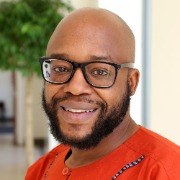
COMMENT Prof. Dr Thoko Kaime, Lena Scheibinger, Isabelle Zundel 21 October 2021
As we celebrate African Human Rights Day today; we look back at one of the most innovative human rights documents in the world: the African Charter on Human and Peoples’ Rights. Whilst the standards laid out in this document have led to a sea change in the promotion and protection of human rights on the continent, they also highlight the enormous task that lies ahead. Because of the Charter, we have seen in many African nations the adoption of normative standards guaranteeing human rights protection in progressive constitutions with dedicated bills of rights. . Because of the Charter, we have witnessed the entrenchment of many protection institutions geared towards the defence of peoples’ rights both at the domestic, subregional and regional level.
Yet, despite the tremendous endeavours and successes of this Charter and the establishment of extensive legal frameworks across Africa, some human rights violations persist with little or no change. Many African citizens still suffer the yoke of human rights abuses and in some cases, their situations seem worse than was the case before the changes implemented in the last four decades. For example, child labour continues to rob many African children of their future. In 2016, it was estimated that one fifth of all African children were involved in child labour. Furthermore, especially children become the victims of human trafficking. In countries across Africa, colonial era laws continue to deny many citizens the right to choose whom they love. Right across the continent, from Algeria to Zimbabwe, non-heterosexual sexual conduct issubject to heavy penalties, including in some cases death by stoning. Throughout the continent, women are still regularly confronted with abusive and discriminatory practices violating their right to human dignity, self-determination and equality. The ongoing stigmatisation and marginalisation of people with disabilities and particularly people with albinism turns the commitment to the protection of vulnerable groups into mere black letter law. Why is there such a huge disparity between the legal framework and the incidence of human rights violations? What can be done to close the gap between the formal protection as against the lived reality of citizens?
As we celebrate the 40th anniversary of the adoption of the Charter, perhaps it is also time to consider the huge task that still lies ahead: to leverage what we already have in relation to normative standards, supervisory institutions and protection procedures to ensure that African states take the next steps in the realisation of the full complement of human and peoples’ rights guaranteed under the Charter and its complements. Realising this ambition will necessarily mean opening up human rights discourse beyond the law and legal strategy. It will require human rights practitioners to speak in many different tongues so that the legitimacy of these human rights standards can be sourced from as wide a societal base as is possible. This also includes giving space to non-legal voices in order to conceptualize the law as a tool tailored to being fit for and utilized by the citizens. The goal for the African human rights system must be to relegate the protection of human rights to some mundane cultural practice as opposed to an arena of vicious contest.

